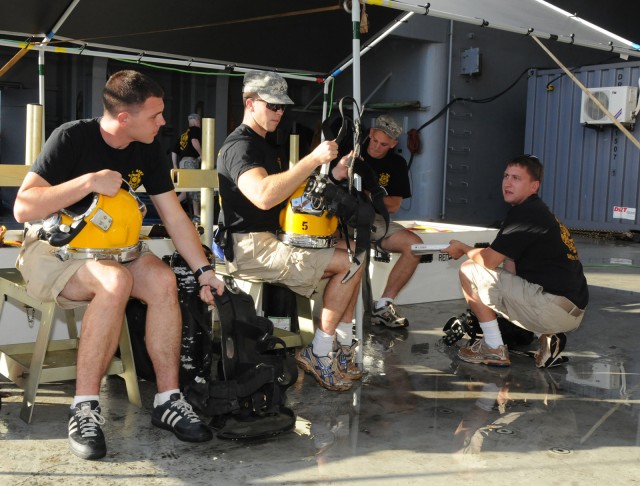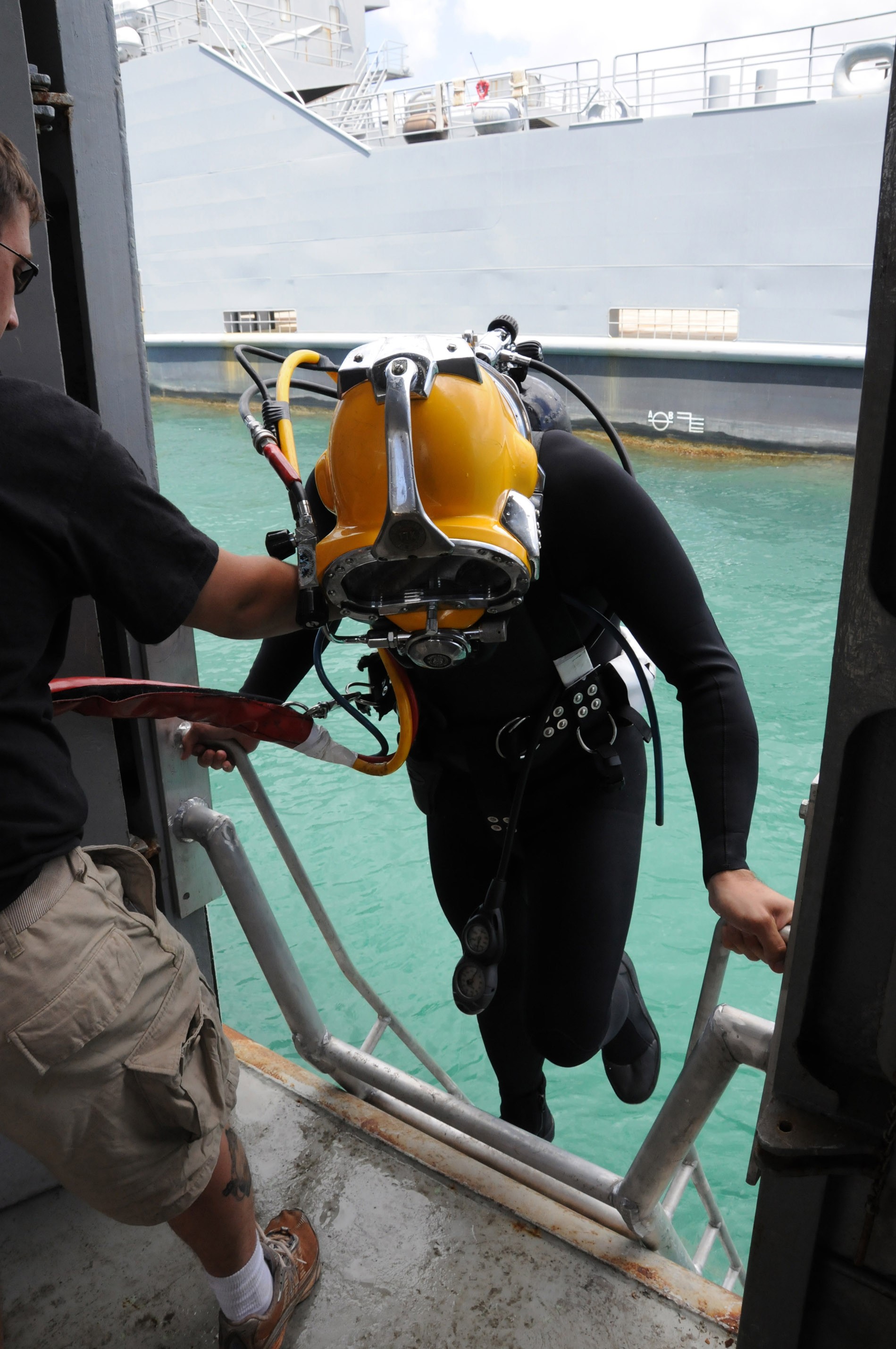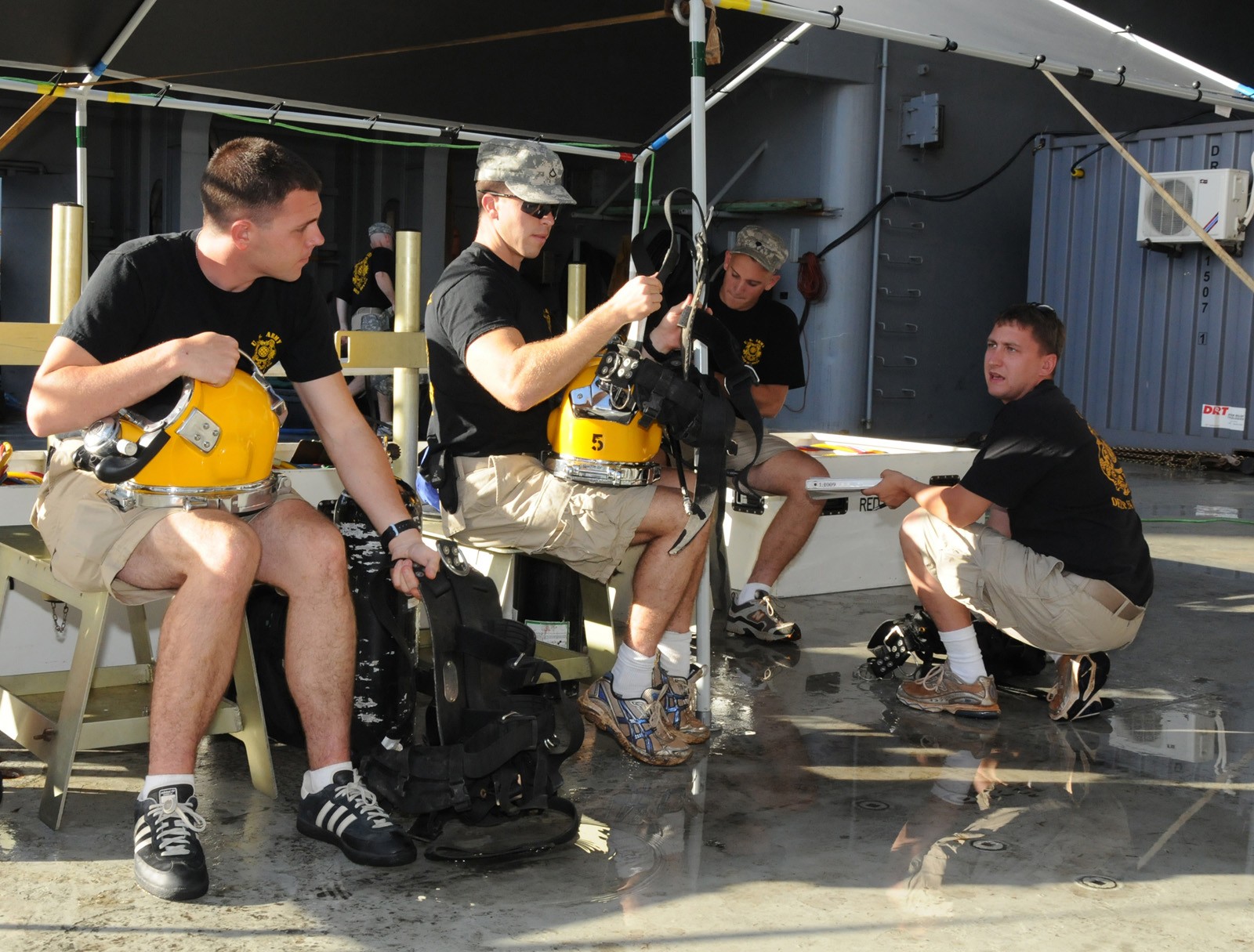HICKAM AIR FORCE BASE, Hawaii (May 13, 2009) - In the Army, engineers routinely fix, tear down and build structures on land.
One such team of engineers does their tasks with an added challenge of an air tank strapped to their backs in depths far lower than commercial divers. The team, consisting of Army divers from the 7th Engineer Dive Detachment is facing the routine challenges engineers encounter during a re-certification training exercise May 11 through May 22 in the coastal waters off the big island of Hawaii.
The 30 Soldiers are diving in a multitude of underwater environments including wrecked ships, reefs, as well as the sea floor to their equipment and hone their skills.
"What we're doing is qualifying on all of our systems and getting the newest divers accustomed to some of the tools we use on a daily basis to make us more mission capable," said Staff Sgt. John Geffert, a salvage diver with the 7th Eng. Dive Det.
The 22-year-old from Hopedale, Mass., said the team is doing everything from SCUBA diving, and hard-hat-diving to instructing diving supervisors on how to handle their dive teams.
"We're going to be out at sea for two weeks," Geffert said. "We do this training once or twice a year, and it's important to keep our divers prepared for when we are needed on a mission."
Pfc. John Hoover, one of the junior Soldiers on the team, will be receiving more advanced training on underwater engineer tasks while out at sea.
"For junior divers like me, we're doing some tool training [underwater cutting and welding]," Hoover said. "For our more experienced divers, they are going to focus on supervisor training."
The 24-year-old, Morehead City, N.C., native said he values the training time as an opportunity to further enhance his schoolhouse training.
"Some of the tools we use are a lot more difficult and require a lot more training than we received in school because underwater cutting and welding are areas we only brushed up on in the schoolhouse," Hoover said.
This exercise provides the divers with more than just a training opportunity. Their time at sea allows them to share experiences and bond with their fellow team members, as well as talk about what makes them put on a different suit to do their part in the Army.
"Being able to get out of ACUs for a while and put on a dive suit is a nice aspect of the job. I love the water; and I love diving," Hoover said. "Our extra training in other skills outside of diving blends into many areas, so we can become a more well-rounded Soldier. If you are interested in diving, you can leave this field with more than you expected."
While many of the divers join for different reasons, one common thread is shared among them.
"It's one of the greatest jobs you can have," Hoover said. "You get all the benefits of the military service, you get all the pride, you get to wear the uniform and at the same time get to do things that people pay a lot of money to do."
Hoover also said that being stationed in Hawaii is another bonus.
"I get to dive at some of the greatest dive locations in the world, where people have to receive special permission to dive," he said. "If anyone has any interest in doing that for the Army, look into diving."








Social Sharing